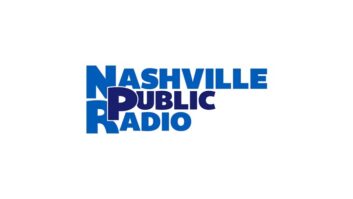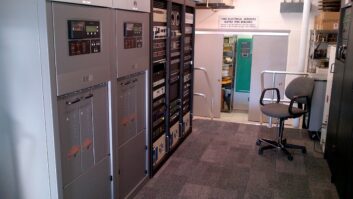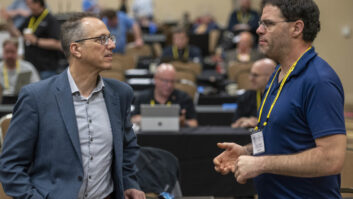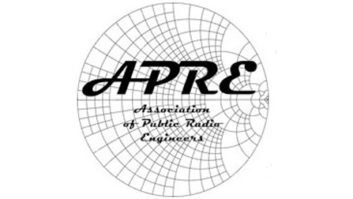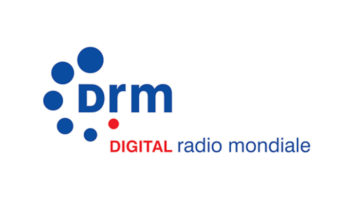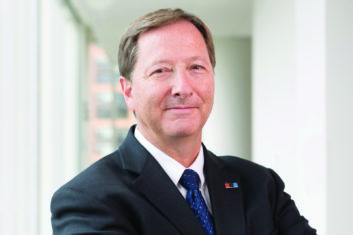
(Photo by Allison Shelley)
As we’ve been reporting, the Federal Communications Commission has published a “cost category schedule” that describes potential expenses and costs that users of earth stations in the United States may incur as a result of the C-Band repack, and put in place a reimbursement program that includes a possible lump-sum payment to earth station owners including many radio stations.
We asked NPR Vice President, Distribution Michael Beach how this is playing out in public radio.
Radio World: Why should public radio stations know about this process now?
Michael Beach: To give some context, we’re talking about existing satellite services that will be repacked in the C-Band’s upper 200 MHz.
Here at NPR Distribution we serve public radio stations in two ways using C-band satellite-based technology.
First, we share the programming of more than 70 active, national radio-content producers with local public radio stations.
Second, we support distribution of content to more than 30 regional public-radio networks. Impact to each of these systems will be minimal because we are transitioning all our networks to the upper band. That move will protect our stations from interference by 5G systems entering the lower part of the band.
RW: Are there risks of interference?
Beach: Risk will occur if any of the new 5G facilities either transmit outside FCC limitations or are physically close to a satellite earth station. To help mitigate these risks, the FCC is providing funding to add a passband filter to each satellite antenna to guard against and lower the risk of potentially interfering signals coming from the lower part of the C-band that will be occupied by 5G.
RW: Are the proposed reimbursements fair?
Beach: The FCC has provided three options for earth stations that are registered and on the list of qualified antennas.
One: A station can take no action and allow its satellite operator to provide and install the filter at no cost. In the case of PRSS stations, Intelsat is the operator. If Intelsat does that work, it will seek reimbursement from the FCC.
Second: An earth station can purchase and install a filter on its own and seek reimbursement directly from the FCC. Details of reimbursement expenses are included in the guidelines of the FCC’s Cost Catalog.
Third: An earth station can receive a one-time lump-sum payment. If a station chooses this last approach, it has a deadline [now extended to Sept. 14] to file its intention with the FCC. The election and electronic filing process is included in the FCC Public Notice.
[Related: Dawnco Urgest Stations to “Take the Lump Sum”]
RW: What if an earth station is not registered with the FCC or not on the list of qualified stations?
Beach: The FCC published a list of registered C-Band antennas on August 3, 2020. If a station is not registered, the station will need to purchase and install a filter at its own expense. The station will not be reimbursed, and the satellite operators will not provide the filter or installation.
RW: What is the lump sum amount that the FCC is offering?
Beach: The lump sum is $8,948 per registered and qualified antenna. FCC documents indicate the amount was derived after considering many different potential migration costs and averaging them.
RW: What are the downsides of either taking that lump-sum option or self-installation and seeking reimbursement?
Beach: By choosing the lump-sum option, an earth station operator assumes all costs and risks with no future option to change its mind. If for any reason an operator selects a filter that does not meet specifications, or installs it incorrectly, the operator’s recourse is to spend more money to correct the problem. This risk also exists if the operator does its own installation followed by seeking reimbursement.
RW: What else should radio engineers and managers know about how this process is going?
Beach: It’s not clear from the FCC’s currently available information what the timetable is for when an earth station can apply for reimbursement. Also unknown is when the filter specifications will be published. So, today, we also cannot identify for our PRSS stations the specific manufacturer part numbers that meet the specifications.
The good news is there is some time; potential interference is not imminent. The FCC auction won’t happen until later this year, and the lower part of the band only has to be cleared in certain cities by the end of next year (2021). The auction for the remaining part of the band and additional cities will be even later. It also means the FCC will not have funds for reimbursements until sometime after the auction, and likely not before June 2021.
